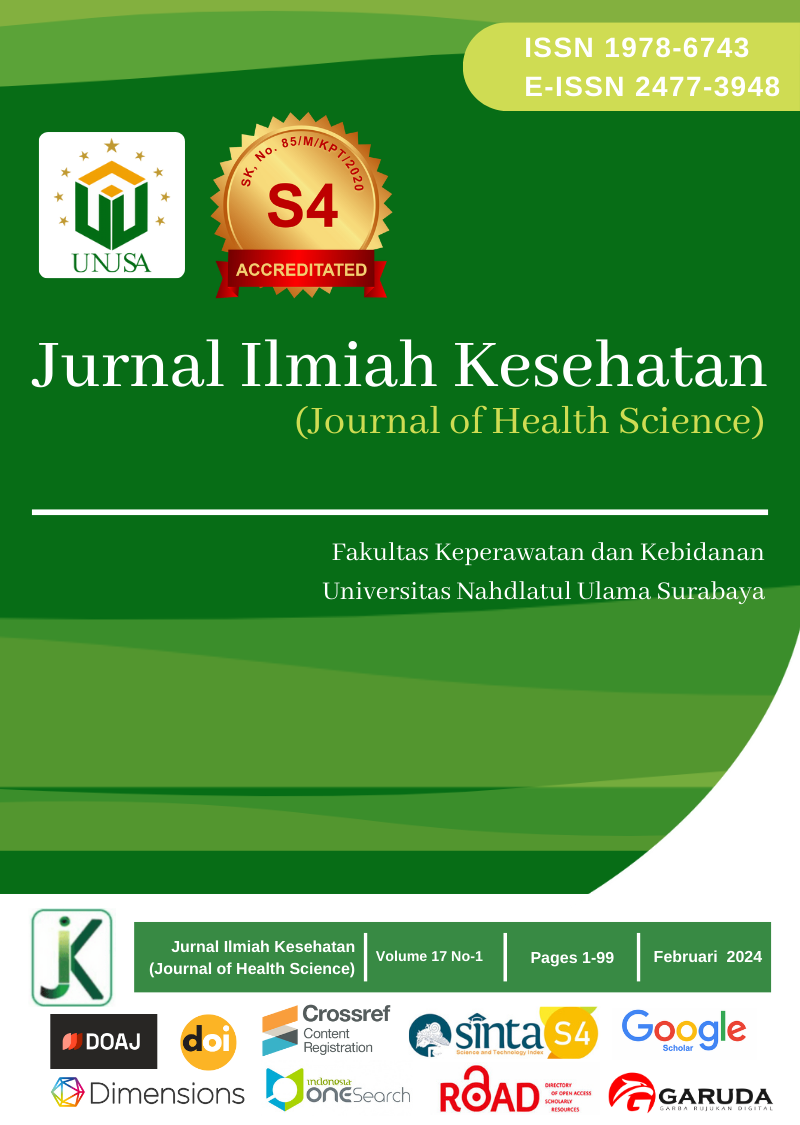Development of an Instrument for Measuring Intention to ACT and Healthy Eating Behavior of Students
Main Article Content
Abstract
The instrument is one of the supporting successes of learning. Assessment of student behavior will influence students' thoughts and decisions in taking more positive action.
This study aims to develop a valid and reliable instrument for students' intention to act and Healthy Eating Behavior. The resulting instrument was a test in the form of a checklist. This research was conducted from March to April 2022 at SMA Negeri 1 Sayur Matinggi with a sample of 38 students from Natural Science 1 and Natural Science 2 classes. The research method uses the ADDIE model (Analyze, Design, Develop, Implement, Evaluate) adopted from the Branch. However, this research only reached the development stage. The results showed that the instrument for assessing the intention to act, and Healthy Eating Behavior was feasible with the respective expert validation results of 87.50 and 84.38. The results of the empirical validation show that 41 questions about the intention to act and 40 questions about healthy eating behavior were valid because they were more than 0.320, and the reliability was more than 0.6.
Downloads
Article Details
Copyright (c) 2024 Lia Junita Harahap, Lena Juliana Harahap

This work is licensed under a Creative Commons Attribution-ShareAlike 4.0 International License.
References
Aktas, E., Sahin, H., Tapaloglu, Z., Oledinma, A., Huda, A. K. S., Irani, Z., & Sharif, A. M. (2018). A
consumer behavioral approach to food waste. Journal of Enterprise Information Management,
(5), 658–673. https://doi.org/10.1108/JEIM-03-2018-0051 DOI: https://doi.org/10.1108/JEIM-03-2018-0051
Amicarelli, V., & Bux, C. (2021). Food waste measurement toward a fair, healthy and environmental-
friendly food system : a critical review. British Food Journal, 123(8), 2907–2935.
https://doi.org/10.1108/BFJ-07-2020-0658 DOI: https://doi.org/10.1108/BFJ-07-2020-0658
Arikunto, S. (2013). Manajemen Penelitian. PT Rineka Cipta.
Baldinger, E. E., & Lai, Y. (2019). Pedagogical context and proof validation: The role of positioning as a
teacher or student. Journal of Mathematical Behavior, 55, 100698.
https://doi.org/10.1016/j.jmathb.2019.03.005 DOI: https://doi.org/10.1016/j.jmathb.2019.03.005
Dey, B. L., Alwi, S., Yamoah, F., Agyepong, S. A., Kizgin, H., & Sarma, M. (2019). Towards a
framework for understanding ethnic consumers ’ acculturation strategies in a multicultural
environment. International Marketing Review, 36(5), 771–804. https://doi.org/10.1108/IMR-03-
-0103
Fitzpatrick, K. M., Harris, C., Drawve, G., & Willis, D. E. (2020). Assessing Food Insecurity among US
Adults during the COVID-19 Pandemic. Journal of Hunger & Environmental Nutrition, 1–18.
https://doi.org/10.1080/19320248.2020.1830221 DOI: https://doi.org/10.1080/19320248.2020.1830221
Hamzah, H., Sutan, R., Tamil, A. M., Bee, A., Kassim, M., & Soid, A. M. (2021). Assessment of
healthcare workers’ behavior in implementing a newborn screening program for congenital
hypothyroidism in Perak, Malaysia. Journal of Health Research, 35(2), 1–14.
https://doi.org/10.1108/JHR-08-2019-0198 DOI: https://doi.org/10.1108/JHR-08-2019-0198
Harahap, Lena Juliana, & Harahap, L. J. (2022). Hubungan Pengetahuan Kesehatan Reproduksi dengan
Perilaku Seksual Remaja di SMA Negeri 8 Padangsidimpuan. Bioedunis Journal, 01(2), 67–72.
Harahap, Lia Junita, Ristanto, R. H., & Komala, R. (2020). Evoking 21st-Century Skills: Developing
Instrument of Critical Thinking Skills and Mastery of Ecosystem Concepts. Tadris: Jurnal
Keguruan Dan Ilmu Tarbiyah, 5(1), 27–41. https://doi.org/10.24042/tadris.v5i1.5943 DOI: https://doi.org/10.24042/tadris.v5i1.5943
Kadir, A. (2015). Menyusun dan menganalisis tes hasil belajar. Al-Ta’dib, 8(2), 70–81.
Kaliji, S. A., Imami, D., Canavari, M., Gjonbalaj, M., & Gjokaj, E. (2022). Fruit-related lifestyles as a
segmentation tool for fruit consumers. British Food Journal, 124(13), 126–142.
https://doi.org/10.1108/BFJ-09-2021-1001 DOI: https://doi.org/10.1108/BFJ-09-2021-1001
Miguel, L., Marques, S., & Duarte, A. P. (2022). The influence of consumer ethnocentrism on purchase
of domestic fruits and vegetables : application of the extended theory of planned behavior. British
Food Journal, 124(13), 599–618. https://doi.org/10.1108/BFJ-11-2021-1208 DOI: https://doi.org/10.1108/BFJ-11-2021-1208
Mokoginta, F. S., Budiarso, F., & Manampiring, A. E. (2016). Gambaran pola asupan makanan pada
remaja di kabupaten bolaang mongondow utara. Jurnal E-Biomedik (EBm), 4(2), 1–10.
Neill, C. O., McCarthy, M. B., Reilly, S. O., & Alfnes, F. (2023). Food interests, preferences, and
behaviours : a profile of the sustainable food consumer. British Food Journal, 125(13), 352–374.
https://doi.org/10.1108/BFJ-09-2022-0762 DOI: https://doi.org/10.1108/BFJ-09-2022-0762
Perry, E. A., Thomas, H., Samra, H. R., Edmonstone, S., Davidson, L., Faulkner, A., Petermann, L.,
Manafò, E., & Kirkpatrick, S. I. (2017). Identifying attributes of food literacy : a scoping review.
Public Health Nutrition, 20(13), 2406–2415. https://doi.org/10.1017/S1368980017001276 DOI: https://doi.org/10.1017/S1368980017001276
Rasool, S., Cerchione, R., Ferraris, A., Management, D., & Abbate, S. (2021). Measurement of consumer awareness of food waste : construct development with a confirmatory factor analysis. British Food
Journal, 123(13), 337–361. https://doi.org/10.1108/BFJ-02-2021-0160 DOI: https://doi.org/10.1108/BFJ-02-2021-0160
Sharps, M., & Robinson, E. (2016). Encouraging children to eat more fruit and vegetables : Health vs . DOI: https://doi.org/10.1016/j.appet.2016.08.084
descriptive social norm-based messages. Appetite, 100, 18–25.
https://doi.org/10.1016/j.appet.2016.01.031 DOI: https://doi.org/10.1016/j.appet.2016.01.031
Szymkowiak, A., Antoniak, M. A., & Borusiak, B. (2022). The role of health orientation in determining
purchase intention and behaviour. British Food Journal, 124(13), 559–577.
https://doi.org/10.1108/BFJ-12-2021-1272 DOI: https://doi.org/10.1108/BFJ-12-2021-1272
Vermeir, I., Weijters, B., Houwer, J. De, Geuens, M., Slabbinck, H., Spruyt, A., Kerckhove, A. Van,
Lippevelde, W. Van, & Steur, H. De. (2020). Environmentally Sustainable Food Consumption : A
Review and Research Agenda From a Goal-Directed Perspective. Journal Frontiers in
Psychology, 11, 1–24. https://doi.org/10.3389/fpsyg.2020.01603 DOI: https://doi.org/10.3389/fpsyg.2020.01603
Wijayaratne, S. P., Reid, M., Westberg, K., Worsley, A., Mavondo, F., Wijayaratne, S. P., Reid, M.,
Westberg, K., Worsley, A., Mavondo, F., Reid, M., Westberg, K., Worsley, A., & Mavondo, F.
(2018). Food literacy, healthy eating barriers, and household diet barriers. European Journal of
Marketing, 1–30. https://doi.org/10.1108/EJM-10-2017-0760 DOI: https://doi.org/10.1108/EJM-10-2017-0760





